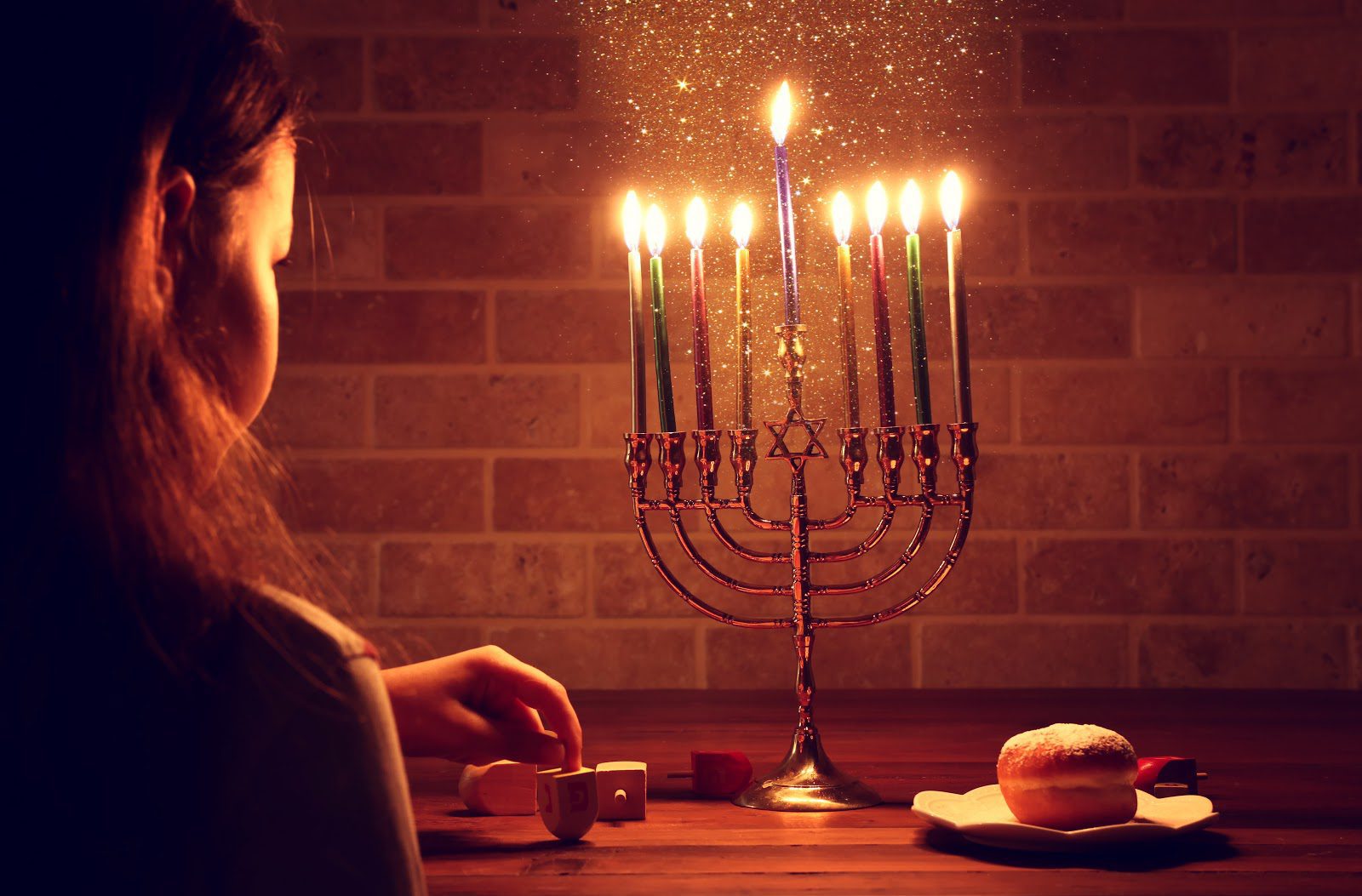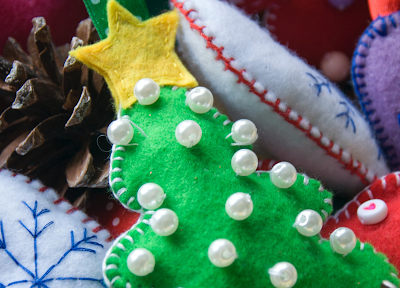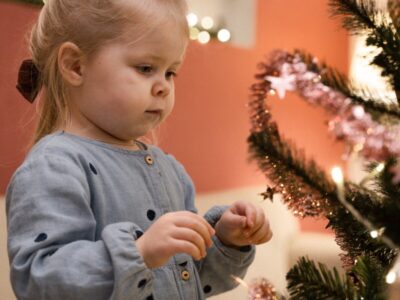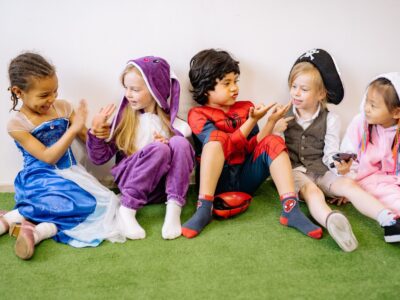As Christians, we are called to love our neighbor as ourselves… but what if our neighbor isn’t at all like us? How can we better equip ourselves to serve as Christ served, to extend love unconditionally? We humans share more in common than we’d like to think, and one thing is true for all of us — we need love. We experience love when we are seen, heard, and understood. As we approach a holiday season that is fully rooted in the Christian faith, we have the opportunity to extend love to those who believe differently. Where do we start with our desire to see, hear, and understand? More often than not, we find shared values we can celebrate together in our own different ways, on the long journey home.
In this series, we explore “why we celebrate” and encourage you to ask your friends and neighbors who celebrate these holidays to share their favorite traditions. As with Christmas, there are myriad of meaningful ways to rejoice.
Hanukkah: Festival of Lights
Hanukkah means “dedication” in Hebrew. The eight-night Jewish holiday, often referred to as “The Festival of Lights,” celebrates the triumph of light over darkness and the rededication of the Second Temple in Jerusalem. In the second century BC, Jews were living under the Greek-Syrian rule until Jewish priest Mattathias and his five sons launched a large-scale rebellion to reclaim their freedom. When Matthathias died, his son Judah Maccabee took the lead, eventually driving the Syrians out of Jerusalem. The Second Temple needed some work. It needed to be cleansed, the altar rebuilt and the menorah, a golden candelabra with seven branches representing knowledge and creation, illuminated once again to burn continuously each night.
According to the Talmud, one of Judaism’s central texts, Judah and his followers experienced a miracle as they set about to rededicate the Temple. In lighting the menorah, they realized there was hardly enough consecrated oil to last the first night. As they scrambled to find more, the flames continued burning for eight nights, the exact length of time it took them to secure more precious oil. They proclaimed a yearly eight-night “Festival of Lights” and to this day Jewish families recite blessings and light the menorah, or “hanukkiah,” often placing it in their window to share the miracle with the world.
The menorah today has nine candleholders, one for each night of Hanukkah, plus the “shamash,” or helper candle, which sits in the middle of the menorah or sometimes on the far right. On the first night, the “shamash” is lit, and then used to light the first candle on the right. The candles will be lit from right to left throughout Hanukkah to follow the reading of the Hebrew language. The menorah is illuminated generally after sunset, though some branches of the Jewish faith wait until it’s completely dark. The candles then must burn all the way down and be replaced with fresh ones the next day. On the second night, using the shamash, two candles are lit and so on through the eighth night. If it’s a Friday, the candles are lit before sunset, and if a Saturday, after nightfall in observance of the Jewish Sabbath which spans sunset on Friday to nightfall on Saturday. Hanukkah begins on the 25th day of the Jewish month of Kislev, which means it can fall anywhere from November 28th to December 26th.
Some Jewish scholars believe the first Hanukkah was actually an overdue celebration of Sukkot, an important Jewish holiday celebrated by seven days of feasting and prayer, put on hold during the Maccabean Revolt. No matter the original reasons, we know that Jesus celebrated Hanukkah more than a century after the revolt as John 10:22-24 places Jesus at the “Festival of Dedication” in the temple courts walking in Solomon’s Colonnade.
Today, Hanukkah is a holiday celebrated more at home than in the synagogue, which makes it comfortingly conducive to our current pandemic lifestyle. As with any good party, everyone ends up in the kitchen for potato latkes and jam-filled donuts. Fried in oil, these delights further commemorate the Hanukkah miracle. Other customs include playing with dreidels, four-sided spinning tops, and exchanging gifts. This is a more recent tradition, perhaps influenced by its proximity to Christmas.
In a beautiful celebration of generosity dating back to the 17th century, Jews in Eastern Europe would give extra coins, called “gelt,” as a year-end gesture of appreciation to teachers, butchers, and service workers during Hanukkah. By giving gelt, every member of the community would have enough money to light the Hanukkah menorah. The Talmud says if a person cannot afford both Hanukkah lights and wine for the Sabbath, the lights take precedence. By the late 19th century, times had grown more affluent and parents would give their children small gifts including chocolate coins wrapped in gold to commemorate the gelt tradition.
If you have trouble spelling the word “Hanukkah,” you’re not the only one. Since the word for Hanukkah, חנוכה, is written in the Hebrew alphabet, there is no definitive spelling in the English language. Instead, we try to spell it phonetically. Variations include “Hannukkah,” “Hanukah,” “Chanuka,” “Chanukah…” Ask your friends how they spell Hannukah and how they’re celebrating this year.
I talked with two of my Jewish friends about their favorite aspects of Hanukkah, and here’s what they said:
“It’s what the word itself means—“dedication.” Reaffirming principles of faith after many defeats and re-dedication of the second Temple after a victory. But the sense of dedication in all its contexts…”
Jeanne-Hélène Roy, Contributor, Consensus Digital Media
“Lighting the candles of Hanukkah is incredibly special. Each year it reminds me of how generations of people are connected by a tradition that extends past geography and borders – that all over the world people are choosing to believe in the good.”
Genia Kaplan Quinn, Editor, Consensus Digital Media





 Copyright
2024
Root and Vine
Copyright
2024
Root and Vine